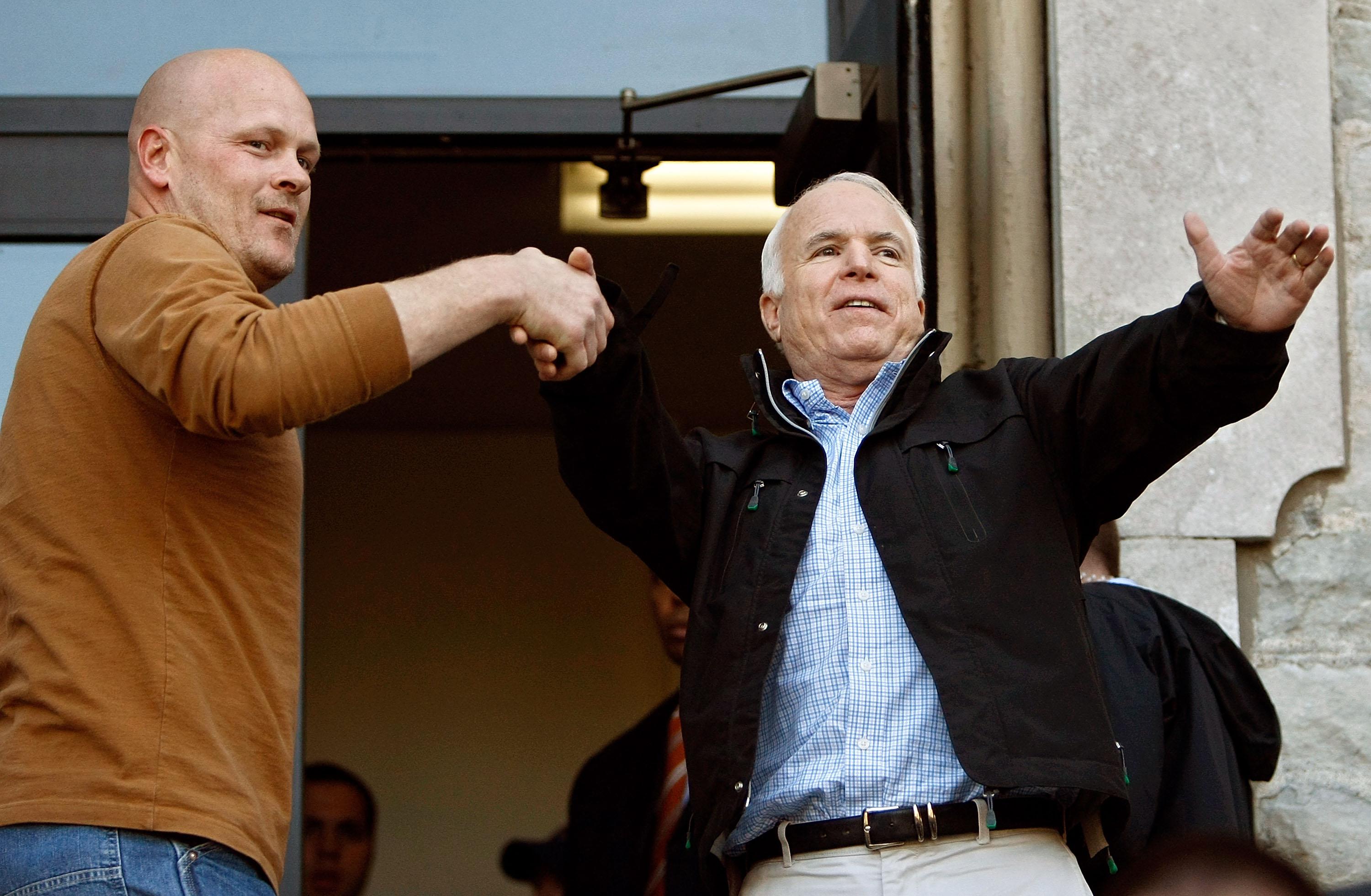Meet John Q. Public. He also goes by John Q. Citizen and John Q. Taxpayer. He’s an upstanding sort who shovels the ice off his stretch of sidewalk, writes a check to his local ASPCA, and tries to be a loving dad to his 2½ kids. He sits in traffic. He has a particular order in which he reads the newspaper. Pace Hollywood, he looks nothing like Denzel Washington, though occasionally in the morning, freshly shaven, adjusting his tie in front of the mirror, he thinks to himself that he’s not too bad.
A few miles away lives Joe Blow. His friends sometimes call him Joe Schmoe, Joe the Plumber, Joe Doakes, and Joe Six-Pack. He likes to unwind with a High Life or three after work, especially if there’s a game on, and he’s kept in touch with a few high school buddies who root for the same teams. Sometimes he finds a smushed piece of candy in his jacket pocket (score); sometimes he arrives at the bank after it closes (dang). Money’s tight but he and his wife, a self-described “Hockey Mom,” get by OK.
We know these Everymen by their names, because they have no faces. Generic and nondescript, they’re the “bankers, schoolmasters and clergymen the martyrs call the world.” But where do their monikers come from, and what happens when they go abroad?
John Q. Public was born in 1922. The editorial cartoonist Vaughn Shoemaker invented him for the Chicago Daily News to satirize how “taxes and stupid officials” made life hard on the average American. In the ’50s, he started showing up in the pages of the Oklahoman, where another cartoonist, Jim Lange, envisioned him mustachioed, fedora’d, bespectacled—a “common citizen trying to understand the political maneuvers of the powerful.” As his name gained signifying force, police departments began to hold up John Q. as the right-living alternative to the perp, skell, or criminal. And his doppelgängers flourished abroad—Joe Public and John Smith in the United Kingdom, John Citizen in Australia, Sile Citizen in Ireland, and, in Canada, Monsieur Tout-le-Monde (“Mr. Everybody”) and Monsieur Untel (“Mr. So-and-so”). Uno Who, a pen-and-ink child of the ’60s, was eternally clad in a bankruptcy barrel and a top hat thanks to his creator John Collins’ disillusionment with the Canadian tax code.
Joe as an epithet for the average guy dates back to 1841, followed by Joe College (your typical student) in 1932 and Joe Blow in 1941. A handbook of military terms from 1943 is harsher, defining “Joe Soap” as a name for “the ‘dumb’ or not so intelligent members of the forces. The men who are overwilling and therefore the usual stooges.” (“Soap,” in this case, is rhyming slang for “dope.”) Unexceptional and at times put-upon, Joe still managed to evade the mantle of victimization hanging around the legal system’s John Doe, born in 13th-century England as a form of witness protection and first appearing as a plaintiff in 1768. (That case’s equally anonymous defendant? Richard Roe.) A dictionary of American slang bears witness to an explosion of Joe-inspired characters in the mid-20th century: Joe Average, Joe Beige, Joe Lunch Bucket, Joe Sad, Joe Schmoe, Joe Six Pack, Joe Yale, Joe Zilch. (Joe Cool, from the same era, is no average guy. You can tell from his sunglasses.) Australia and New Zealand discovered Joe Bloggs, who occasionally goes by Fred, around the same time. During the 2008 U.S. election, John McCain found a real-life Joe, gave him a plunger, and transformed him into a valuable political demographic.
What’s the point of John Q. and Joe? Why do we need both? John seems to express our political righteousness and good citizenry, even as we live at the mercy of an occasionally flawed government. (For a comprehensive rundown of sympathetic Everymen around the world, check out this Wikipedia page. You’ll meet, among many others, Pepito Perez from Colombia, Mario Rossi from Italy, Wanjiku from Kenya, Sa Nation la from Mauritius, Ola Nordmann from Norway, and Petya Ivanov from Russia.) He is a square who cares, and we care about him. Features maybe blurred by nostalgia, he’s a useful cipher to have around for anyone crafting rhetoric about the American Dream, how nice guys should finish first, or the rewards of clean living. He also evinces a kind of Jack Bauer potentiality—a latent aptitude for morphing, thrillingly, into a take-no-prisoners badass when his values/loved ones are threatened. See the “Summon Everyman Hero” TV trope.
But Joe. More hapless clown than cardboard protagonist, he’s the go-to guy for eliciting low-level condescension, whether it takes the form of scorn, pity, affection, or amusement. His lack of pretense, and especially his galoot moments, entwine uncomfortably with his blue-collar status. If John Q. embodies ordinariness as the reassuring opposite of a scary Other (with the straightforward moral code to match), then Joe represents the ordinary as the not-extraordinary, the mediocre, the earthbound rule to someone else’s exception.
Since Joe’s not real enough to feel hurt by all this, perhaps there’s value in keeping him around—we didn’t retire Homer Simpson because he was dopey and boring, and the abuse of archetypes is no reason to get rid of them altogether. On the other hand, why must our stock goof belong to a lower social class than our honest citizen? Do such cartoonish visions of the common man (and note how easily that common man might slip into commoner) erode our empathy? These are questions John Q. should bring up at the next town hall meeting. Joe can’t make it—he’s got a busted sink to fix down the street.
